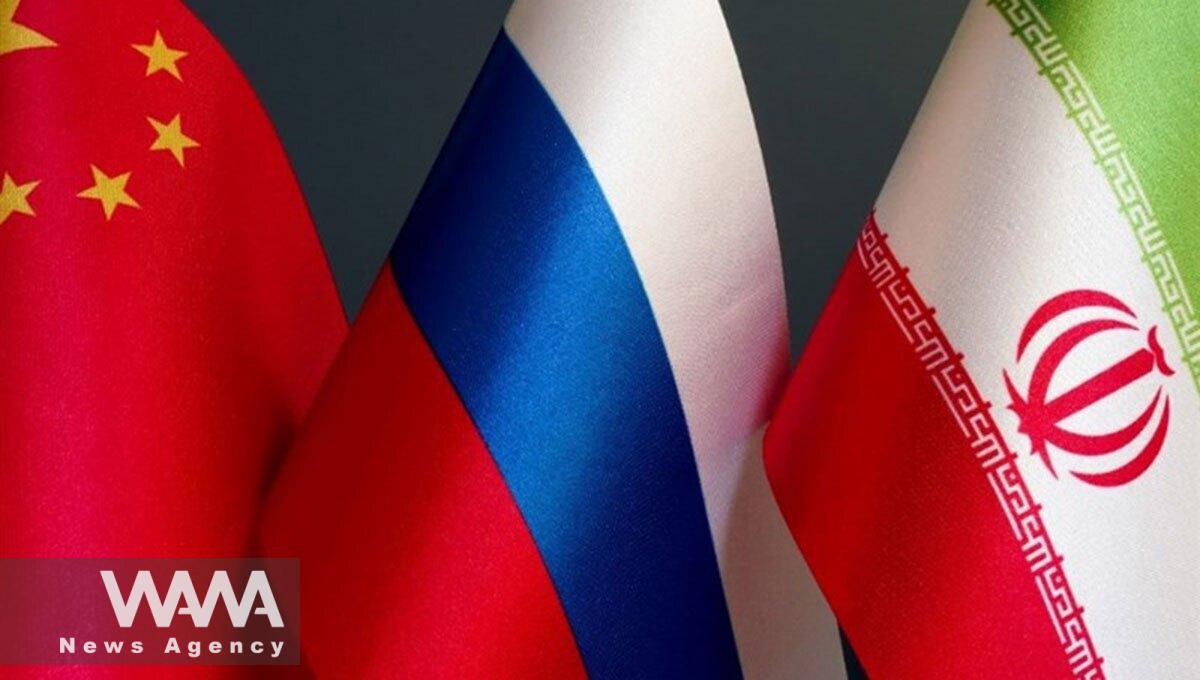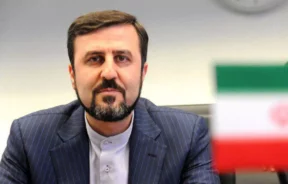From Geneva to Moscow and Beijing: Iran’s Pursuit of Strategic Alliances
WANA (Dec 07) – Last week, Iran’s Deputy Foreign Ministers, Kazem Gharibabadi and Majid Takht-Ravanchi, visited Beijing and Moscow to strengthen bilateral ties and enhance coordination on regional and international issues. These meetings are part of Iran’s ongoing diplomatic efforts to exchange views with key partners following the Geneva summit.
The Geneva summit, held on November 29, served as a follow-up to the October talks in New York. It provided an opportunity to assess conditions and discuss shared concerns between Iran and the three European countries.
The discussions covered various issues, including regional concerns and allegations related to Ukraine. According to Kazem Gharibabadi, agreements were reached to continue negotiations in the near future.

Report on Iran-EU Talks in Geneva: Frank Discussions and Clear Disagreements
WANA (Nov 29) – On Thursday in Geneva, a meeting between senior Iranian diplomats and the Deputy Secretary-General of the European External Action Service (EEAS). The session, held as part of ongoing Iran-EU dialogues, focused on issues including Iran’s nuclear program, human rights allegations, regional tensions, and Iran’s purported role in the Ukraine war. […]
Esmail Baghaei, spokesperson for Iran’s Foreign Ministry, emphasized that these meetings are part of routine diplomatic exchanges and should not be interpreted as the start of formal nuclear negotiations. He added that Iran used this platform to present its perspectives and hear those of European counterparts.
Strategic Engagement with China
Kazem Gharibabadi met with China’s Vice Foreign Minister during his trip to Beijing. He announced that the meeting included discussions on resuming talks to lift sanctions and enhancing legal and international cooperation.
Gharibabadi also highlighted the importance of sustained Iran-China engagement to counter unilateralism and promote equitable global governance.

Araghchi: Iran Will Continue Supporting the Syrian People and Government
WANA (Dec 07) – Iran’s Foreign Minister, Seyed Abbas Araghchi, emphasized Iran’s unwavering support for Syria during a press briefing on Saturday. Speaking on the sidelines of the Doha Forum, Araghchi highlighted the fluid and rapidly changing dynamics in the region, reaffirming Tehran’s commitment to assisting the Syrian government and people. “This is a […]
Expanding Economic Collaboration with Russia
Majid Takht-Ravanchi, meanwhile, held meetings in Moscow with Russian Deputy Foreign Ministers Andrei Rudenko and Sergey Ryabkov.
The discussions focused on strengthening trade and economic ties, implementing joint infrastructure projects, and formulating long-term cooperation plans. According to Russia’s Foreign Ministry, the two sides agreed to intensify bilateral contacts and cooperation at various levels.
Iran’s Comprehensive Foreign Policy
Foreign Minister Seyed Abbas Araghchi stated in a television interview that Iran’s foreign policy prioritizes engaging with neighbors, enhancing relations with China and Russia, and expanding cooperation within the BRICS framework. He referred to the 25-year agreement with China as a roadmap for collaboration and announced that a similar agreement with Russia would soon be signed.
Aiming for Strategic Partnerships
Iran’s recent diplomatic visits to China and Russia underscore its efforts to bolster ties with strategic partners and achieve greater alignment in addressing regional and global challenges. These engagements reflect Iran’s active foreign policy aimed at expanding influence and fostering broader interactions in the international system.












